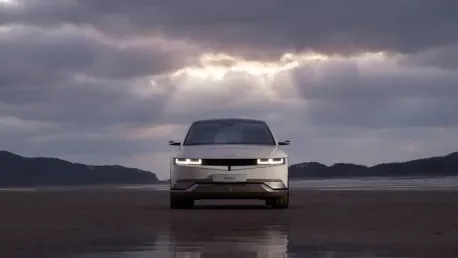The debate over whether to continue subsidies for electric vehicles (EVs) has gained momentum, especially in light of recent political promises to end these incentives. The $7,500 tax credit on Battery Electric Vehicles (BEVs) has been a significant factor in promoting the adoption of cleaner transportation options. This article explores the multifaceted reasons why maintaining these subsidies is crucial for the environment, the economy, and public health. Without such incentives, the progress made in transitioning to renewable energy-driven transportation could stall, consequently exacerbating environmental, economic, and health challenges that BEVs help mitigate.
Environmental Impact of Electric Vehicles
Transitioning from a carbon-pollution-based economy to one driven by renewable energy is essential in combating climate change. BEVs play a critical role in this transition by reducing carbon emissions, which are primarily responsible for global warming. Fossil fuel-powered vehicles are highly inefficient, with only 20-30% of the energy from burning fuel used to move the vehicle, while the rest is wasted as exhaust gases. This inefficiency leads to significant carbon dioxide emissions, trapping heat in the atmosphere and contributing to severe environmental consequences, including climate change.
The environmental benefits of electric vehicles extend beyond reducing carbon emissions. BEVs do not emit toxic gases, which helps stabilize the atmosphere and mitigate the effects of climate change. The reduction in pollution from BEVs can lead to fewer forest fires, less intense droughts, and milder hurricanes. Additionally, lower temperatures can positively impact agricultural yields and reduce the spread of tropical diseases, further emphasizing the need for continued subsidies. The link between carbon emissions and disastrous climate events underscores the urgency of promoting BEVs through financial incentives.
Economic Benefits of Subsidies
The economic advantages of maintaining subsidies for electric vehicles are substantial. The U.S. car industry is heavily invested in the global electric vehicle market, with significant investments totaling $120 billion and the creation of 143,000 new jobs. These jobs support local economies and fund essential public services through taxes. Eliminating the subsidies could lead to a decline in BEV sales, forcing American car companies to revert to producing gasoline and diesel-powered vehicles, thereby reducing their competitiveness in the global market. As the global market for electric vehicles expands rapidly, American manufacturers must keep pace.
The global market for electric vehicles is rapidly expanding, and U.S. car manufacturers must keep pace to remain competitive. Maintaining subsidies is crucial for the U.S. economy and the global standing of its industries. The wages from jobs created by the electric vehicle market support local economies, and the transition to electric vehicles can lead to a more sustainable and prosperous future. If subsidies are eliminated, American car companies may find it challenging to compete with European and Chinese manufacturers, who are also heavily invested in electric vehicles.
Public Health Benefits
Reducing emissions from fossil fuel-powered vehicles has significant public health benefits. Toxic emissions from these vehicles cause a range of health issues, including carcinogenic, neurological, cardiological, immunological, reproductive, and respiratory damage. Children are particularly vulnerable, especially those who ride on diesel-powered school buses. Legislative acts such as the JOBS Act, the Inflation Reduction Act, and the Clean School Bus Act provide subsidies to help school districts transition to electric school buses, reducing exposure to harmful emissions. This transition is already underway in numerous districts across the country, pointing to a growing commitment to healthier transportation options.
The transition to electric school buses is already underway in many U.S. school districts, including Tucson’s TUSD. This shift not only protects children’s health but also contributes to the broader goal of reducing carbon pollution and improving air quality. By maintaining subsidies for electric vehicles, we can ensure a healthier future for vulnerable populations and the community at large. The health benefits of reducing toxic emissions are pronounced and add an imperative to continue supporting BEV subsidies for both immediate and long-term health outcomes.
Encouraging Adoption of Electric Vehicles
Subsidies for electric vehicles make them more affordable and encourage their adoption. This is crucial for accelerating the transition to an economy powered by renewable energy. The initial cost of BEVs can be a barrier for many consumers, but subsidies help bridge this gap, making electric vehicles a viable option for a broader audience. Increased adoption of BEVs leads to a reduction in overall carbon pollution, benefiting the entire community. The snowball effect of more people opting for BEVs can lead to even greater technological advancements and economies of scale in the electric vehicle market.
The positive impact of subsidies extends beyond individual buyers. By promoting the adoption of electric vehicles, subsidies contribute to cleaner air, quieter streets, and a more sustainable future. The benefits of this transition are far-reaching, affecting not only current generations but also future ones. Supporting subsidies for electric vehicles is a step toward a healthier, more sustainable world. As technology improves and adoption rates rise, it becomes increasingly viable to envision a future where BEVs dominate personal and public transportation, fostering a more resilient and environmentally-friendly economy.
Conclusion
The debate surrounding the continuation of subsidies for electric vehicles (EVs) has intensified, especially given recent political discussions about ending these incentives. The $7,500 tax credit for Battery Electric Vehicles (BEVs) has played a significant role in encouraging the use of cleaner transportation options. This article delves into the various reasons why maintaining these subsidies is vital for the environment, economy, and public health.
If these incentives were to be removed, the progress achieved in transitioning to transportation powered by renewable energy could come to a halt. Such a setback would worsen environmental issues, economic stability, and public health concerns that BEVs currently help to address. The subsidies not only make EVs more affordable for consumers but also drive technological innovation and job creation in the renewable energy and automotive industries. Given the urgent need to combat climate change and reduce pollution-related health problems, continuing these subsidies is essential to sustain the momentum toward a more sustainable future.









